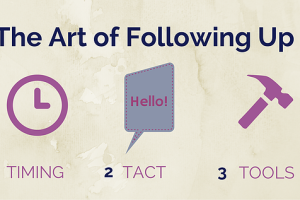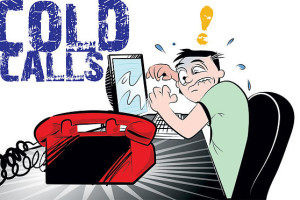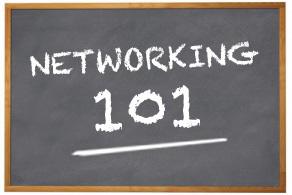Self-editing is not an easy thing; it requires being highly critical about your own writing. You need to be able to observe your writing from someone else’s perspective — the Imaginary Reader – and spot if there is anything that this reader might have difficulties understanding. Although it all might seem crystal clear to you in your head, things can turn out much different once your ideas reach the monitor.
To help you make the process easier and smoother, I am sharing my own tips and strategies that I have picked up throughout years of writing and editing; even incorporating just a few of them will do wonders for your writing! Whether you are writing a blog, an email, or a landing page, here are some tips that are bound to make your copy more engaging and effective — just try them out. Remember, an engaged reader could turn into a prospect, while a bored one will not.
- Use visual words
Use words that can summon up vivid images in your reader’s mind. Use similes, metaphors, anything that will make your copy stick with them. Tell them an enticing story from your childhood, a story that they can relate to. People love and have always loved storytelling. They loved it even before the written word existed. Use it to your advantage.
- Bold the key points
What stress and intonation can do to emphasize main ideas of your oral presentation, bolding can do for your written copy. Generally speaking, in-text formatting options such as bolding, italicizing and underlining are a great tool to help you stress the main ideas of your writing — busy readers will love you for using them! They do not have the time to read the whole text and they will be thankful to you for valuing their time. However, do not overdo it and do not use all three formatting options too much – generally, try sticking with one.
- Use bullet points to emphasize key information
We all know the difference between online readers and hard copy readers – the first ones do not tend to stick around for too long. The online reader is harsh and rarely gives second chances. They judge your copy within 2 seconds from opening the webpage. This is the reader you need to appeal to. How?
Use bullet point to make life easier for them. Organize your information and present it in such a way that it doesn’t take a lot of mental energy to understand it. Your readers will appreciate it.
- Start with questions that elicit a ‘yes’ answer
This is an old trick used in Neurolinguistic programing (NLP). Basically, if you ask 2 or 3 questions that require a reader to give an affirmative answer, chances are that they will answer with a ‘yes’ to the 4th question as well.
Now, do not think I am undermining anyone’s intelligence. Psychologists have spent their share of time studying why this happens. What they have found is that people like to be consistent in their attitudes and actions. So, in a situation when they are unsure about a course of action, they tend to act in accordance with the consistency rule.
Another reason is cognitive laziness, i.e. people are sometimes too lazy to think so they act automatically, without thinking. So, basically, if you can get your readers to say ‘yes’ enough times to your questions, they might end up saying ‘yes’ to your offer too.
- Use the ‘Enter’ button copiously
Go easy on your readers. Do not use long, packed paragraphs that put strain on them. Avoid cramped sentences and allow for space between different ideas. Space has an important role – it gives readers a chance to rest their eyes and their brain. It also allows for a mental break when transiting from one idea to another. Space makes your copy more readable and structured. So, when in doubt about separating two ideas, double press the ‘Enter’ key just in case. But make sure to finish your thought first before moving on to the next one.
- Use the word ‘because’
People are logical beings even when these logics do not seem all too reasonable. Studies show that if you ask people for a favor and give them a reason to do something — albeit a silly, illogical reason — they are far more likely to comply. For example, in one popular research often quoted among students of behavior, a man asked people waiting in line for a copier machine to go first because he needed to make some copies. It turned out that when the reason (‘I have to make copies’) was given, the percentage of people who said ‘yes’ was about 30% higher than when there was no ‘because’.
- Use the pronoun ‘you’
‘You’ is the best pronoun that you can use in your copy. Why? Because (notice my ‘because’!) it is the most personal and direct way of addressing your readers. By using this pronoun, you are bringing the conversation to a more intimate level. It is them that you are addressing and nobody else.
- Use powerful words and short sentences
Forget what they taught you at school. Save your fancy, long sentences for essay writing. With copy writing, use short sentences and avoid long-winded words. Be concise in your writing. Do away with unnecessary words such as ‘very’. The same goes for adverbs – instead of using too many, vague words, use fewer, precise words.
- Avoid passive sentences
Passive sentences are the one thing that you should absolutely avoid in your writing. They are vague, indefinite and make your copy seem as boring as legal writing. To recap, a passive sentence is “This article was written by me”, while its active variant would be “I wrote this article”. Which one sounds more natural and readable, you can judge it yourself.
Be your own worst critic
Being your own critic is the most difficult thing, especially in writing. Sometimes we get so attached to our lovingly crafted sentences that we fail to spot their imperfections. Do not forget that you are writing for the average reader. Think how an average reader thinks; will they get all your jokes and allusions? If not, better remove them. The more work you invest in your copy, the more it will pay back. Do a test – write two copies, one edit and reedit abundantly and the other one just proofread — see which one will get more clicks, shares and conversions. This should tell you enough about the importance of editing.









Speak Your Mind